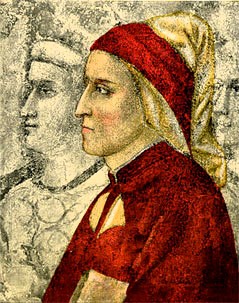Since it's Valentine's Day and our thoughts lightly turn to love and buying over-priced chocolate, I thought I'd do a post about one of my favorite couples in history, Napoleon and Josephine.
Two years ago, you could have mentioned them and I would have said, "Yeah, yeah, famous romance, meh, whatever." But then, last year, I read Sandra Gulland's The Josephine B Trilogy and I fell in love with their story. As soon as I started reading it, I could not put the 1200-page brick of a book down.
Gulland wrote them as epistolary novels, weaving together letters to Josephine (all but one of which were real, if edited, versions) and entries into her fictional diary spanning from her childhood to her death. The novels feel intimate and respectful of the past. It brings life to facts, events, and people. It feels as real as historical fiction can feel, without layers of gloss or fantasy. (As a side note for history geeks, she also has fantastic footnotes, maps, family trees, timelines, and a few other special surprises. Love!)
After becoming completely immersed in the story, it finally had me sobbing for the last 50 pages. And when I say sobbing, I mean it. Tissues in one hand, book in the other, ugly crying. I have never cried like that over a book. Gulland actually made me cry real tears relating to that short, funny looking, fiery, overly ambitious, power-hungry, cheating, passionate Napoleon guy. Magic!
So by now you might be saying, so what? They're books. It's fiction. And you'd be right. But the books are based on the reality of a fascinating, passionate, tumultuous, and ultimately tragic relationship. A relationship that was no Disney fairy-tale.
Josephine, originally from the island of Martinique, was widowed with two children, Hortense and Eugène, after a largely loveless marriage to a handsome jerk named Alexandre de Beauharnais. His life ended at the guillotine.
When she met Napoleone Bonaparte (the original spelling of his Corsican name) in 1795, he was six years her junior and kind of a weirdo with crazy ideas of invading Italy. He fell head over heels for her and basically changed her name to Josephine. Her real first name was Rose. Their marriage in 1796 originally was something of a marriage of convenience.
Over the years, he had affairs. There is evidence that she had some, too. He divorced her and remarried an Austrian princess, Marie-Louise, so he could have an heir. This was after Josephine went through many painful trips to specialists and "spas" over a period of years to try to cure her infertility, which was probably brought about from severe stress when she was imprisoned during the Terror. And yet, an imperfect, but real, strong friendship and love developed between them.
So, I will leave you with some excerpts from a few of Napoleon's letters to Josephine in honor of Valentine's Day--may yours be full of love whether you are in a relationship or not, whether your love is like a glossy fairy-tale or not.
The first three excerpts were found at this excellent online exhibition PBS did on Napoleon. I definitely recommend going there and reading through it thing if you're interested Napoleon and/or his relationship with Josephine.
December 1795
I awake full of you. Your image and the memory of last night's intoxicating pleasures has left no rest to my senses.
Sweet incomparable Josephine, what a strange effect you have on my heart. Are you angry? Do I see you sad? Are you worried? My soul breaks with grief and there is no rest for your lover; but how much the more when I yield to this passion that rules me and drink a burning flame from you lips and your heart? Oh! This night has shown me that your portrait is not you!
You leave at midday; in three hours I shall see you.
Meanwhile, my sweet love, a thousand kisses; but do not give me any, for they set my blood on fire.
B.
In November of 1796, Napoleon was away and hearing rumors of Josephine's infidelity. He wrote:
I don't love you anymore, on the contrary, I detest you. You are a vile, mean, beastly slut. You don't write to me at all; you don't love your husband; you know how happy your letters make him, and you don't write him six lines of nonsense. . .
Soon, I hope, I will be holding you in my arms; then I will cover you with a million hot kisses, burning like the equator.
Eventually, Napoleon needed to find an heir. This pressure and his increasingly open affairs sparked marital problems and jealousy between the two. He wrote to his brother Lucien "Josephine is decidedly old and as she cannot now have any children she is very melancholy about it and tiresome[. . .]the woman cries every time she has indigestion, because she says she believes she has been poisoned by those who want me to marry someone else. It is detestable." They divorced on January 10th in 1810.
Josephine wrote in her divorce statement:
The dissolution of my marriage will make no change in the feelings of my heart. The Emperor will always find in me his truest friend.
(From page 1106 of The Josephine B Trilogy. A picture of the letter/statement and French transcription are here.)
Napoleon and Josephine continued to write each other after the divorce, he wrote this a week after:
Trianon, January 17, 1810.
My Dear, D'Audenarde, whom I sent to see you this morning tells me that since you have been at Malmaison you have no longer any courage. Yet that place is full of our happy memories, which can and ought never to change, at least on my side.
I want badly to see you, but I must have some assurance that you are strong and not weak; I too am rather like you, and it makes me frightfully wretched.
Adieu, Josephine; good-night. If you doubted me, you would be very ungrateful.
Napoleon.
(From a great archive of Napoleon's letters to Josephine found on archive.org)
Josephine died on May 29, 1810 at her beloved Château de Malmaison, just outside of Paris. Her son, Eugène, wrote to Napoleon to break the news.
Sire, Emperor (Papa),
I am writing to you now with tears in my heart. Your beloved Josephine passed away suddenly. We still cannot comprehend that she is no longer with us. Our distress is made more bearable knowing that she lived a full life, a life full of love. She loved us. She loved you--profoundly.
[He goes on to describe her illness over a period of days, a problem with her throat, and her subsequent death.]
She was placed in a double casket. Over twenty thousand people came all the way out to Malmaison to pay their last respects. Astonishing. Even the gate here at Saint-Leu is covered with bouquets and letters of sympathy. Really, Papa, it touches us deeply to see such an outpouring of love.
"Tell him I am waiting," Maman told Hortense a few days before her death. Fever talk, we thought at the time, but now it all seems so clear. Mimi, who was with her through that last feverish night, says her last words were of you.
Did she know how much we loved her? If Maman's death has taught me anything, Sire, it is that one must speak one's heart when one can. I love and honour you as my Emperor and commanding general, but above all as my father. Bon courage, as Corsicans say. May God be with you. I know her spirit will be.
Your faithful and devoted son, Eugène
(Found on page 1171 of The Josephine B. Trilogy)
Almost 11 years later, on May 5, 1821, Napoleon's last words were: "France, l'armée, tête d'armée, Josephine."
France, army, head of army, Josephine.





















